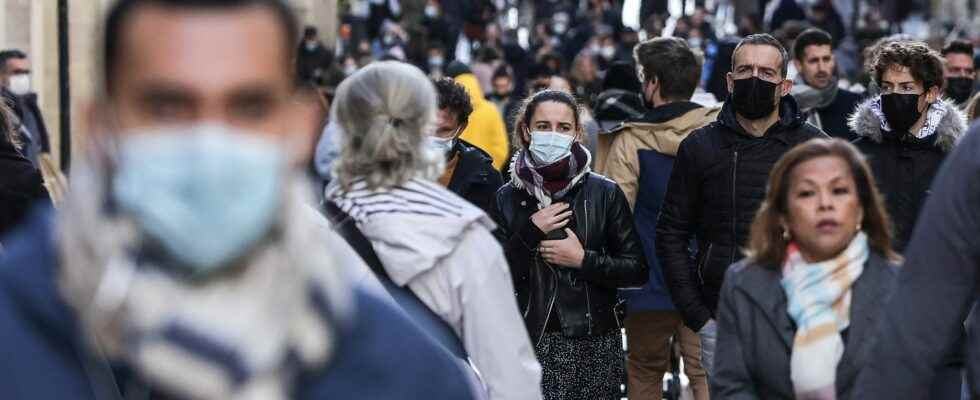An explosive cocktail. Between the Covid pandemic, the ravages of the heat wave and the influenza and bronchiolitis epidemics, France recorded a spectacular rise in its mortality in 2022. At the same time, the number of births continued to decline. Here are the details of the figures released by INSEE on January 17.
68 million inhabitants
France has 68 million inhabitants, including 65.8 million in mainland France and 2.2 million overseas. In total, this represents an increase of 217,000 people in one year – the lowest ever recorded with the sole exception of the year 2020, marked by the Covid. We do not yet have sufficiently detailed data to confirm or invalidate the hypothesis according to which the epidemic would have led a large number of French people to leave the metropolises to settle in medium-sized towns and the countryside.
The migratory balance higher than the natural balance
This growth is mainly explained by our migratory balance (+ 161,000), that is the difference between entering and leaving the territory. The natural balance, that is to say the gap between births and deaths, amounts to 56,000 – the lowest number since the Second World War. To take the measure of this collapse, you should know that this same figure was between 200,000 and 300,000 between 2006 and 2015.
Result: since 2018, immigration has been the main demographic contribution to the country, with a surplus of the migratory balance over the natural balance of some 105,000 people. Un unprecedented figure in the history of national statistics. In 2011, the natural balance was still 248,000 people higher than the migratory balance.
Falling births
This explains it: only 730,000 births were recorded in 2022, i.e. 19,000 less than in 2021. This number is particularly low and extends a decline that began in 2014. The total fertility rate, i.e. the number of births reported the number of women of childbearing age, is no more than 1.80 in 2022, whereas it was around 2 between 2006 and 2014 (it is estimated that it must exceed 2.05 to ensure the renewal of generations.) Logically, the average age at childbearing continues to increase and now stands at 31 (all births combined).
Increasingly high mortality
Conversely, the number of deaths was extremely high in 2002. 667,000 people lost their lives last year, i.e. 5,000 more than in 2021. This is certainly less than in 2020, marked by the emergence of the Covid, but much more than before. Several factors explain this bad news. A fundamental reason: the aging of the numerous baby-boom generations. And cyclical reasons: the fifth and sixth waves of the epidemic, on the one hand, but also the summer heat wave, and the epidemics at the end of the year (Covid, influenza and bronchiolitis). In total, INSEE estimates the number of additional deaths recorded at 46,000 compared to the figure that could be expected.
Population aging is on the rise
21.3% of people living in France are now over 65 and 10.1% over 75. This development poses many challenges in terms of health and the balance of pension schemes, but which results from good news: the long-term increase in life expectancy. While this was only 60 years for men and 65 years for women in 1946, it reached 79.3 and 85.2 years respectively in 2022. Note, however, that these figures are down compared to 2019. The Covid has been there…
A rebound in marriages
244,000 marriages were registered in 2022 (including 7,000 between people of the same sex). This very high figure, however, reflects more of a delayed effect than a return to grace of the institution. Many unions had indeed had to be postponed due to the epidemic in 2020.
On the Pacs side, there is greater stability, with 192,000 pacts signed last year (including around 7,000 also between people of the same sex).
The average age at the time of unions continues to increase. It now stands at 37.2 years for women and 39.6 years for men (44 years for people of the same sex). On the one hand because young working people wait to see their professional situation stabilize before committing themselves; on the other hand because the many marriages that end badly… sometimes give rise to remarriages.
